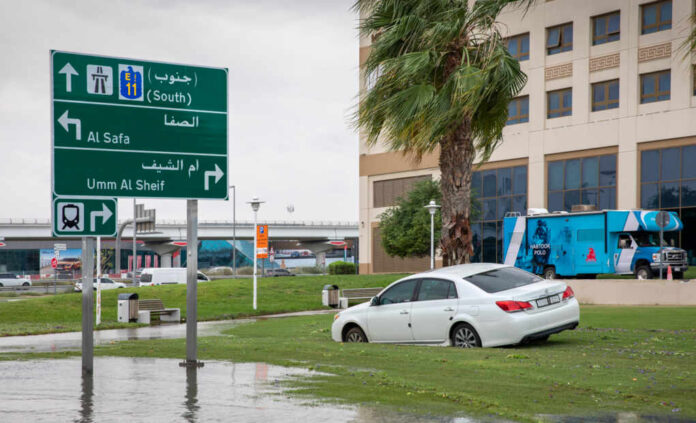
Dubai is a city famous for its towering skyscrapers and hot desert climate but recently it saw a weather event like no other. The heaviest rains in almost 80 years caused terrible floods that took many lives and led to a lot of damage.
Some people think climate change is to blame for the destructive storm but others believe a controversial practice called cloud seeding may have played a big role. The UAE is open about its efforts to change the weather and many think these actions could be responsible for the deadly downpour.
The government says it’s not to blame for the catastrophic flooding but a lot of people are skeptical of their official statement. Experts from around the world say cloud seeding which tries to change weather patterns by releasing chemicals into the sky can actually work.
https://twitter.com/search?q=dubai%20seeding&src=typed\_query
In the U.S. cloud seeding has even been used in places like Utah which reported a 12% boost in its water supply in 2018 thanks to this method. But there are risks that come with this poorly understood practice that can’t be ignored.
According to The Daily Mail the UAE has spent a lot of time and money over the past few decades trying to perfect cloud seeding techniques. But it’s still not clear if this week’s flooding happened because they succeeded.
Cloud seeding works by putting things like sodium or silver iodide into clouds to make water crystals form faster. These crystals keep growing until they get so heavy that they fall as rain or snow.
It’s interesting to note that China is the biggest supporter of cloud seeding in the world. The country actually used the technique in reverse to stop rain during the 2008 Beijing Olympics.
As Dubai deals with the aftermath of this terrible event there are still questions about what can happen when we try to mess with the balance of nature. The tragic deaths and widespread damage are a harsh reminder of how powerful weather can be and why we need to be careful when we try to control it.

































